The Future of AI Assistants: Are They Becoming Too Human-Like?
In the realm of technological advancement, AI assistants have emerged as indispensable tools, revolutionizing the way we interact with our devices and access information. These digital companions, once rudimentary and robotic, have evolved into sophisticated entities that blur the lines between human and machine. As we peer into the future of AI assistants, an intriguing question looms: are they becoming too human-like?
The trajectory of AI assistant development has been a fascinating journey, characterized by leaps in natural language processing, machine learning, and neural networks. The early iterations of AI assistants were characterized by stilted responses and mechanical interactions. However, with each iteration, these digital entities have grown more conversational, capable of understanding context, tone, and even nuances in language. This evolution has made them increasingly adept at engaging users in meaningful conversations.
As AI assistants approach a level of human-like interaction, they hold the potential to transform numerous aspects of daily life. Tasks that once required human intervention, such as scheduling appointments, sending emails, or even providing emotional support, can now be delegated to these virtual companions. This convenience has led to heightened productivity and efficiency, as well as improved accessibility for individuals with disabilities.
Yet, this transition towards greater human-likeness is not without its ethical and societal considerations. The more AI assistants mimic human behavior, the more they raise questions about privacy, consent, and manipulation. The boundaries between authentic human interaction and AI-generated responses can become blurred, leading to potential deception or even exploitation.
Furthermore, as AI assistants become more human-like, there's a risk of emotional attachment on the part of users. Humans are wired to form connections with entities that exhibit empathy, understanding, and responsiveness. The more AI assistants replicate these qualities, the more users might perceive them as genuine companions, potentially resulting in a blurring of emotional lines between human relationships and AI interactions.
The future trajectory of AI assistants must navigate these intricate challenges. Striking the balance between enhanced functionality and responsible deployment is crucial. Developers need to implement robust safeguards to ensure transparency in AI-human interactions, preventing the unintentional manipulation of users' emotions or decisions. Transparent disclosure of AI identity and capabilities will help users maintain a clear understanding of the nature of their interactions.
In conclusion, the future of AI assistants holds immense promise but also presents significant ethical dilemmas. Their evolution towards human-likeness enables seamless integration into our lives, streamlining tasks and enhancing accessibility. However, careful consideration is needed to prevent potential pitfalls such as privacy breaches, emotional attachment, and manipulation. As we forge ahead into this technologically enriched landscape, striking the right balance will determine whether AI assistants become harmonious companions or unsettling imitations of humanity.
-
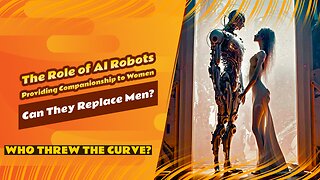 12:07
12:07
Whothrewthecurve
9 months agoThe Role of AI Robots in Providing Companionship to Women, Can They Replace Men? #podcast #foryou
225 -
 0:12
0:12
Theory Vault
11 months agoThe Future of AI: Will Machines Surpass Human Intelligence?
1 -
 2:33
2:33
NomanIkram786
5 months agoFUTURE OF ARTIFICIAL INTELLIGENCE
14 -
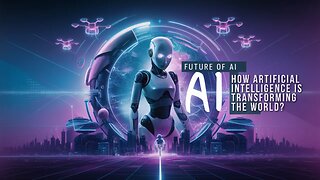 10:15
10:15
CogniHive
1 month agoFuture Of AI: How Artificial Intelligence Is Transforming the World | CogniHive.tube
10 -
 1:19
1:19
WFHUniversity
6 months agoAI and Cognitive Assistants
1 -
 1:07:38
1:07:38
Unscripted Company
3 months agoArtificial Intelligence: Will AI Enhance or Replace Humanity? | Unscripted Company
14 -
 1:28
1:28
Nurqayz
1 year agoThe Future of AI Technology
10 -
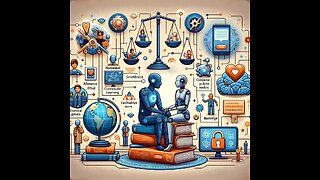 3:36
3:36
bobcolee
6 months agoAI and Human Communications
24 -
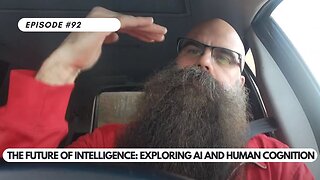 34:19
34:19
Dave Wright The Thinker
1 month agoEp #92 - The Future of Intelligence Exploring AI and Human Cognition on the Road
131 -
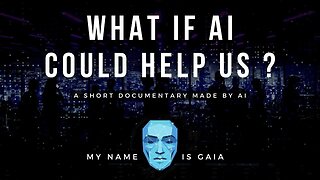 8:37
8:37
Saintamirosein
8 months agoArtificial Intelligence (AI) in 2033: Exploring the Bright Side and Future Possibilities with Gaia
10